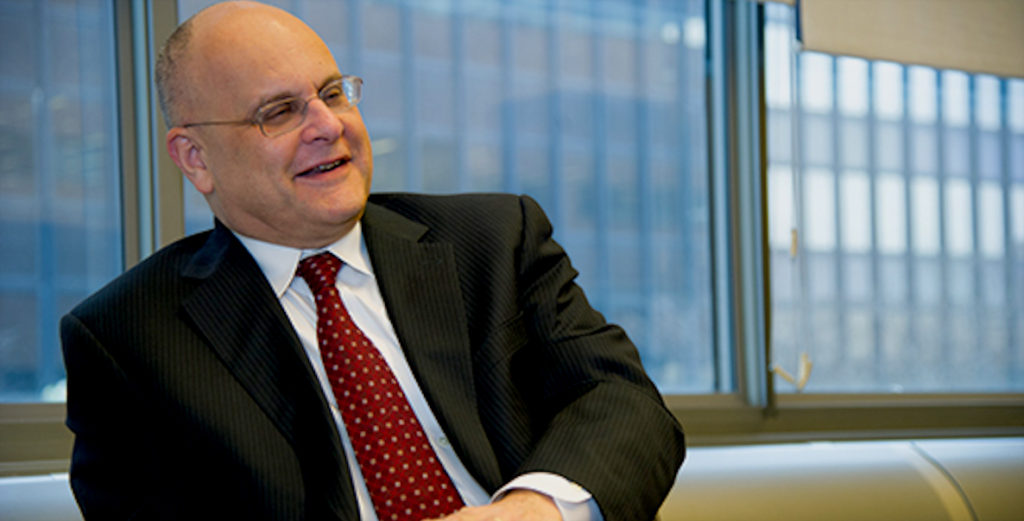Our conventional conception of an intellectual is that of a tweedy, effete wonk, penning recondite tomes aloft in the ivory tower, far removed from the daily toil and troubles of the masses below. Jeremy Nowak, who died at 66 on July 28th following a heart attack a couple weeks earlier, flipped that conception on its head.
As a prolific author and visionary thinker on the past, present and future of cities, Jeremy directed big ideas not toward the academy but to the streets and neighborhoods where people actually live their lives. He put his money (and a lot of other people’s money, too) where his mouth was, insistent that real societal problems can really be solved if only we think, communicate, engage, invest and commit ourselves to finding those solutions.
Jeremy was possessed of a powerful mind and a fearless, formidable bearing. He ceaselessly spoke hard truths to the city’s gatekeepers and kingmakers, even as his own clout grew with the success of The Reinvestment Fund, one of America’s preeminent community development financial institutions, and subsequently as the leader of influential institutions ranging from the Federal Reserve Bank of Philadelphia to Mastery Charter Schools to the William Penn Foundation. Though his colleagues and peers from time to time opposed his point of view, Jeremy never demurred; to him, the urgency of the issues he sought to tackle required an uncompromising and uncompromised attack.
In his mission to make Philadelphia thrive for all of its inhabitants, Jeremy never denied he was pushing a large boulder up a steep hill; it was up to you if you wanted to help him push or to get rolled over.
To be close with Jeremy was to pet a lion; he was warm and strong, but in a flash could turn withering and unyielding in defense of his principles. Still, his demanding nature was not a product of some sense of superiority (he never used his academic, literary or professional credentials as currency to access exclusive domains), but a manifestation of his passion for doing what needed to be done. In his mission to make Philadelphia thrive for all of its inhabitants, Jeremy never denied he was pushing a large boulder up a steep hill; it was up to you if you wanted to help him push or to get rolled over.
I decided to get on the right side of that boulder when I co-founded The Philadelphia Citizen, and immediately sought out Jeremy as an essential advisor. Jeremy’s true genius was in his ability to distill infinitely convoluted and complex subjects into diagnoses and prescriptions fit for public consumption, and more importantly, for public application. He graced me with a bit of that genius when I approached him for guidance on a host of initiatives I’d been working to launch more or less simultaneously. His direction was simple: “Pick one.”
And though I ultimately failed to heed his advice, Jeremy still agreed to accept the chairmanship of the Citizen, where he not only did insightful, perceptive and robust journalism on the many challenges facing Philadelphia, but served as our philosophical and ethical lodestar, keeping us true to our mission of reigniting citizenship in our city. To the extent that The Citizen demonstrates an abiding clarity of purpose, all credit is due to Jeremy’s influence.
That’s who Jeremy was and that’s what Jeremy did; no ivory tower could contain him, and so he became that rare and treasured figure–an intellectual of, by and for the people.
In his remembrance of Jeremy, Citizen co-founder Larry Platt describes our collective state as “heartbroken, and worried about the future of a city with no Jeremy Nowak in it, calling it out, urging it to be its best self.” Larry’s tribute ends on a note of hope, suggesting that with the wealth of his writings, the return on his civic investments and “the eloquent example of his life,” Jeremy’s “absence will make us want to be better citizens, and better to one another.” I couldn’t agree more, and yet I still find remarkable that an “intellectual” could engender such a desire.
But that’s who Jeremy was and that’s what Jeremy did; no ivory tower could contain him, and so he became that rare and treasured figure—an intellectual of, by and for the people.
Ajay Raju, an attorney and philanthropist, is chairman of DilworthPaxson and a founder/board member of The Citizen.

